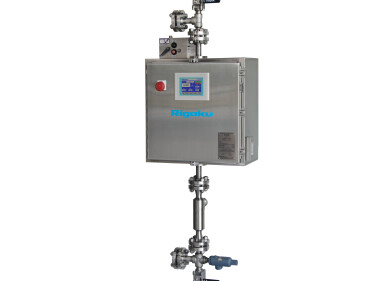Measurement and Testing
What Are the Advantages of Hydrogen as a Fuel?
Apr 19 2022
From impressive eco-friendly credentials to the potential to improve national energy security, the advantages of hydrogen as a fuel are extensive. Read on to find out more about why governments and industries around the world are championing hydrogen as a fuel source:
Abundant and readily available
As the most abundant element, there’s no shortage of hydrogen. More than 70% of all visible mass in the universe is made up of hydrogen, with the chemical element readily available in enormous quantities. While hydrogen doesn’t exist in pure form and must be isolated using methods such as steam-methane reforming and electrolysis, new technologies are making these processes more energy efficient and eco-friendly.
Energy security
Hydrogen has enormous potential to improve national energy security for countries willing to invest in specialised infrastructure. Producing hydrogen using renewable resources such as biomass, everyday waste, solar power and tidal energy can not only help to slash greenhouse gas emissions but reduce dependency on foreign imports.
Impressive energy efficiency
Compared to petrol, hydrogen is an incredibly efficient and energy dense fuel source. The chemical element releases 142 megajoules (MJ) of energy per kilogram, compared to petrol which releases just 46 MJ per kilogram.
A zero-emission fuel source
Unlike petrol-powered cars which release more than 2kg of CO2 into the atmosphere for every litre of fuel burned, hydrogen-powered Fuel Cell Electric Vehicles (FCEVs) emit heat and water vapour as their only by-products. This gives hydrogen exciting potential as an eco-friendly fuel source.
Potential for 100% green credentials
Currently, most of the world’s hydrogen is produced using steam-methane reforming, which releases large amounts of carbon dioxide into the atmosphere. The process is a major contributor to climate change, which is why an increasing number of countries are switching to ‘green’ hydrogen produced using renewable energy. The US Department of Energy says hydrogen has “potential for near-zero greenhouse gas emissions” when produced using the right methods.
A variety of applications
Recreational FCEVs aren’t the only way hydrogen is being used as a fuel source. For example, the West Midlands operates one of the largest fleets of hydrogen-powered public buses in the world. Hydrogen-powered buses are also cruising the streets of the capital, with Transport for London maintaining the zero-emission buses will play an important role in improving air quality. Hydrogen is also widely used in the oil refining and industrial sectors.
Want to know more about hydrogen? From the origins of hydrogen fuel to the different methods used to isolate the chemical element, we cover a wide range of topics in ‘Everything You Need to Know About Hydrogen Fuel’.
Digital Edition
PIN 25.5 Oct/Nov 2024
November 2024
Analytical Instrumentation - Picturing Viscosity – How Can a Viscometer or a Rheometer Benefit You? - Sustainable Grease Formulations: Evaluating Key Performance Parameters and Testing Method...
View all digital editions
Events
Nov 26 2024 Paris, France
Nov 26 2024 Amsterdam, Netherlands
Nov 27 2024 Istanbul, Turkey
Biogas Convention & Trade Fair 2024
Nov 27 2024 Hanover, Germany
Dec 03 2024 Dusseldorf, Germany



















